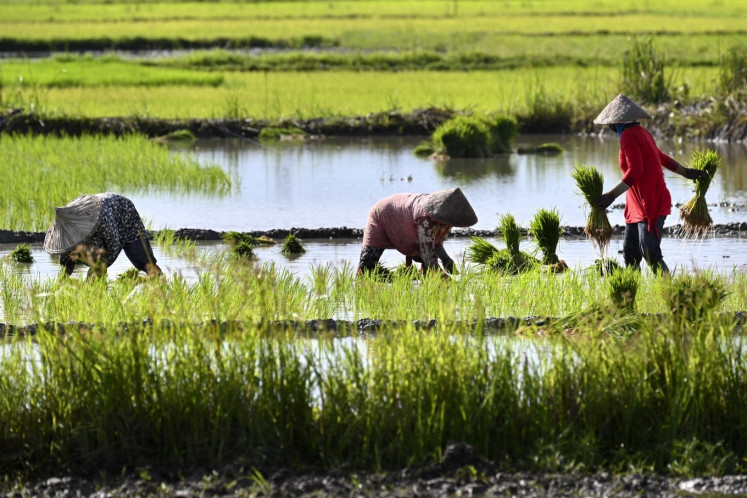Popular Reads
Top Results
Can't find what you're looking for?
View all search resultsPopular Reads
Top Results
Can't find what you're looking for?
View all search resultsDemocratizing knowledge for our dream
Change text size
Gift Premium Articles
to Anyone
O
n Jan. 15, an event was held at the Taman Ismail Marzuki arts center in Jakarta, commemorating 35 years of the Jan. 15, 1974 riots, also known as the Malari incident. The slogan “Make Democracy Real” was displayed all over the venue.
The organizer, Hariman Siregar, a well-known Malari figure, raised the need to reorient development to serve society, not just elites and their cronies. He repeated the perennial Malari observation that foreign influence needed to be properly examined for the interest of Indonesians’ welfare. Fear of foreign domination was one reason for the 1974 riots, which greeted then-visiting Japanese prime minister Kakuei Tanaka.
Unfortunately, this calibration is missing from Indonesia’s higher education academic journal policies. Foreign influence dominates, as reflected from prioritization of English and other foreign languages. According to the policies, an Indonesian-based journal in the Indonesian language can never reach international standard as Indonesian is not considered an international language (see pak.ristekdikti.go.id/portal/?page_id=14).
This is contrary to international journals in other countries such as Malaysia, which also publish many articles in Malay. This also contradicts the 2009 law on the Indonesian language, which states that the government has a responsibility to systematically advance Indonesian as an international language.
In 2017, the Education and Culture Ministry mentioned the importance of using Indonesian in the public sphere. With progress in digital and networking technology, the scientific world is now considered a form of public sphere where “Digital means everything, Public means everyone, and Space means everywhere”, as Jeremy Myerson wrote.
If the government does not consider Indonesian an international language, including in academia, who else would? Countries that proudly use their national language as a scientific language can also be at the forefront of scientific and technological development, such as Germany and Japan.
The Indonesian scientific journal policy is clearly undemocratic. Indonesian is deemed unworthy of international scientific expression by its own government.


















